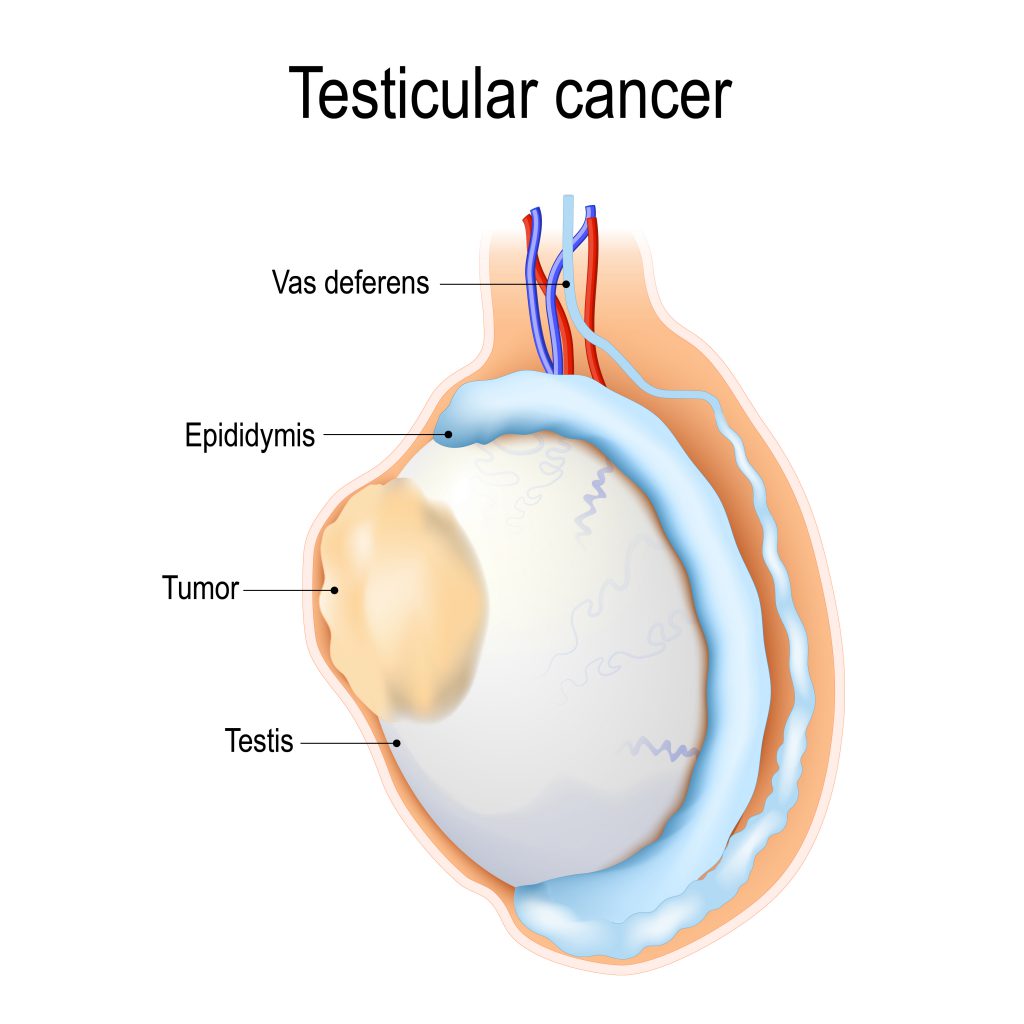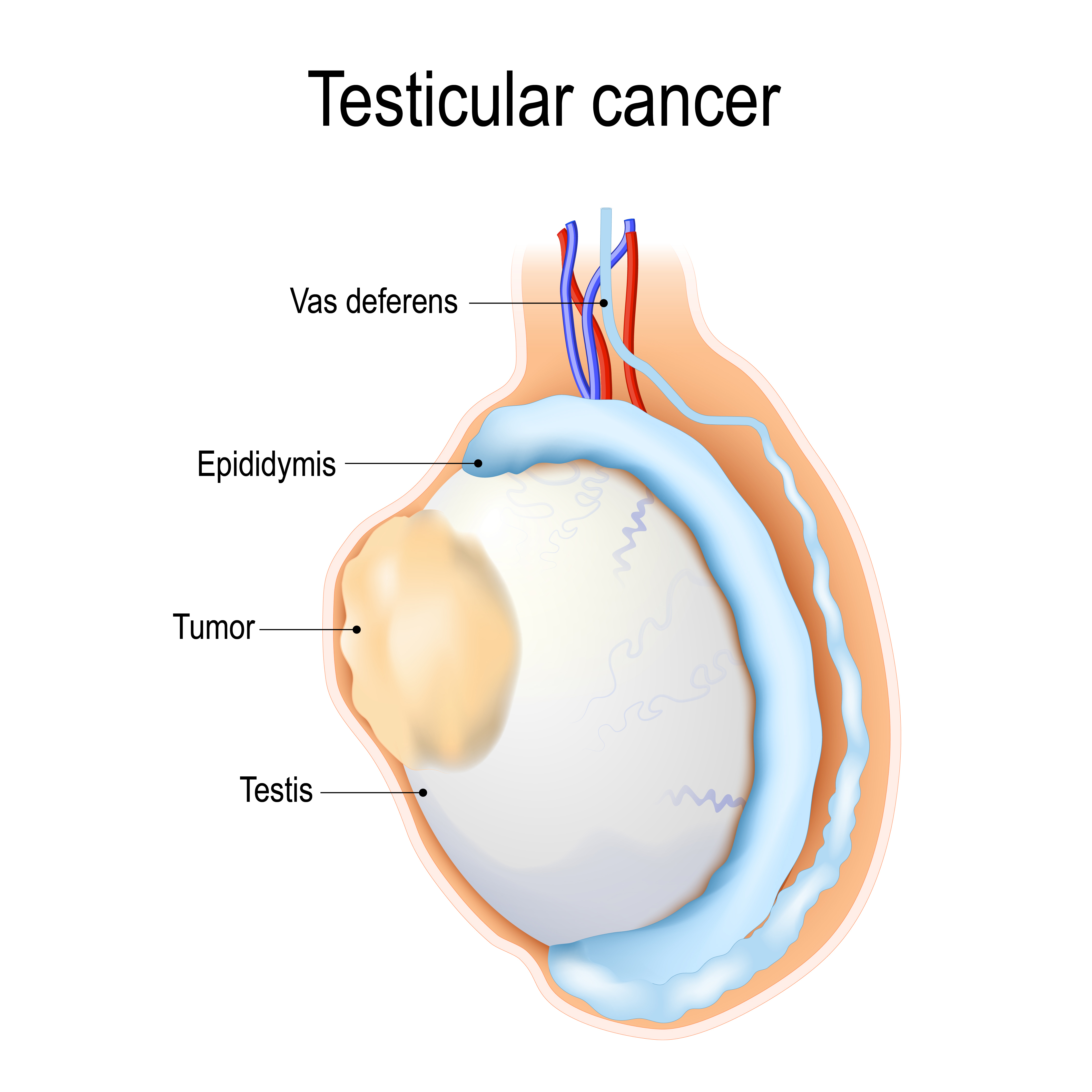Testicular cancer is the cancer in the testicles, the male reproductive organ that makes hormones and sperm. Learn more about testicular cancer here
Testicular cancer occurs in the testicles or the testes, which are present inside the scrotum a loose bag of skin under the penis. The testicles are responsible for the production of male sex organs and sperm for reproduction. Testicular cancer is the one of the rarest cancer and also, the curable one. Even if the cancer has metastasized, it can be treated.

The exact causes of testicular cancer in most cases is still being researched as there are no known reasons for it as of the current knowledge. Testicular cancer occurs when there is an abnormality in the healthy cells in testicles. The abnormalities of testicular cancer are caused due to irregular cell division and these cells accumulate to form a mass in the testicle. Most of the testicle cancers begin and develop in the germ cells, which are responsible for the production of immature sperm.
What are the risk factors of testicular cancer?
Anything which increases the possibility of getting the disease/cancer is known as a risk factor. The following are the factors which increase the risk of testicular cancer:
Undescended testicle:
Cryptorchidism or undescended testicles is one of the major risk factors for testicular cancer. This a condition where one or both testicles fail to travel from the abdomen to the scrotum before birth. Men with this condition are more likely to develop testicular cancer than the ones with descended testicles. Undescended testicles are observed in 3% of boys before the child is born. There are two possibilities for this situation, one/both of the testicles remain in the abdomen, or the testicles begin to descended but remain in the groin area.
In most of the male kids, the undescended testicles progress into the scrotum in their first year. But, if this is not the situation and the testicles have not descended when the child is one year old, a surgical procedure called the orchiopexy is required to move the testicles into the scrotum. The correct age for the surgery is still being researched, but it is suggested that the surgery is effective if it is done immediately after the child grows one, read more about surgery for testicular cancer here. Men whose testicle refrained in the abdomen have a higher risk of developing testicular cancer. The exact reasons behind testicular cancer and abnormal positioning of one or both testicles is still being studied.
Family history:
Testicular cancer can be inherited from a father or brother having it, or it at least increases the risk of occurrence. But not all men who have testicular cancer have a family history of the disease.
Abnormal testicle development:
Klinefelter’s syndrome, an inherited disease that causes abnormalities in the development of the testicles also contributes in increasing the risk of testicular cancer. The male child is born with an extra X chromosome instead of Y chromosome and the growth of reproductive organs is affected due to this.
HIV infection:
Research has shown that men with human immunodeficiency virus (HIV), especially those who have been infected with AIDS have a higher risk of developing testicular cancer.
Cancer in the other testicle:
A patient’s personal history of this cancer is also a major risk factor for developing testicular cancer. Approximately 3% or 4% of patients who were given treatment for one testicle, develop cancer in another, at the same point of time.
Age:
Men of all age groups, including infants can be affected by testicular cancer but the incidence is particularly higher in those between the 15 and 35.
Race:
White men have been noted to have a higher risk of developing testicular cancer than African American descent.
Body size:
According to a few studies, tall men are at a higher risk of developing testicular cancer than shorter ones, though this observation is not widely supported or accepted.
Carcinoma in situ:
This is a condition where the testicular germ cell cancers develop a non-invasive form of the disease. It often doesn’t give any symptoms, and it is also not clear how it progresses into cancer.
In a few cases, it is found in men who had a testicular biopsy to assess the infertility or cryptorchidism.
Treating Cis is still a matter of thought because the reason behind Cis becoming an invasive cancer is still not known.
Read about the symptoms of testicular cancer

